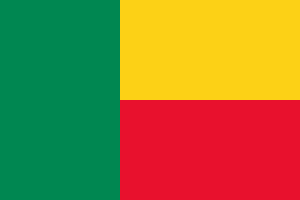Difference between revisions of "Language/Fon/Grammar/How-to-Use-Have"
m (Quick edit) |
m (Quick edit) |
||
| Line 66: | Line 66: | ||
➡ If you have any questions, please ask them in the comments section below.<br>➡ Feel free to edit this wiki page if you think it can be improved. 😎 | ➡ If you have any questions, please ask them in the comments section below.<br>➡ Feel free to edit this wiki page if you think it can be improved. 😎 | ||
==Related Lessons== | |||
* [[Language/Fon/Grammar/Questions|Questions]] | |||
* [[Language/Fon/Grammar/Adjectives|Adjectives]] | |||
* [[Language/Fon/Grammar/Give-your-Opinion|Give your Opinion]] | |||
* [[Language/Fon/Grammar/Plurals|Plurals]] | |||
* [[Language/Fon/Grammar/Conditional-Mood|Conditional Mood]] | |||
* [[Language/Fon/Grammar/How-to-Use-Be|How to Use Be]] | |||
* [[Language/Fon/Grammar/Negation|Negation]] | |||
* [[Language/Fon/Grammar/Pronouns|Pronouns]] | |||
{{Fon-Page-Bottom}} | {{Fon-Page-Bottom}} | ||
Revision as of 00:32, 2 March 2023
Hi Fon learners! 😊
In this lesson, we will learn how to use the verb "have" in Fon. We will look at the different forms of the verb and how it is used in sentences.
Introduction
The verb "have" is an important verb in Fon. It is used to express possession, ownership, and relationships. It is also used to express actions that have been completed or are ongoing. In this lesson, we will look at the different forms of the verb and how it is used in sentences.
Forms of the Verb "Have"
The verb "have" has two forms in Fon: the present tense form and the past tense form.
Present Tense
The present tense form of the verb "have" is wɔ. This form is used to express possession, ownership, and relationships. It is also used to express actions that are ongoing.
Examples:
- Mí wɔ nú. (I have a house.)
- Èwò wɔ mí. (He has me.)
- Wò wɔ kpɔn. (She is cooking.)
Past Tense
The past tense form of the verb "have" is wɔn. This form is used to express actions that have been completed.
Examples:
- Mí wɔn nú. (I had a house.)
- Èwò wɔn mí. (He had me.)
- Wò wɔn kpɔn. (She cooked.)
Usage
The verb "have" can be used in a variety of ways in Fon. Here are some examples of how it is used:
Possession
The verb "have" is used to express possession or ownership.
Examples:
- Mí wɔ nú. (I have a house.)
- Èwò wɔ mɔ. (He has a car.)
- Wò wɔ bɔbɔ. (She has a dog.)
Relationships
The verb "have" is also used to express relationships.
Examples:
- Mí wɔ èwò. (I have him.)
- Èwò wɔ mí. (He has me.)
- Wò wɔ èwò. (She has him.)
Actions
The verb "have" is also used to express actions that are ongoing or have been completed.
Examples:
- Mí wɔ kpɔn. (I am cooking.)
- Èwò wɔ kpɔn. (He is cooking.)
- Wò wɔn kpɔn. (She cooked.)
Conclusion
In this lesson, we have looked at the different forms of the verb "have" in Fon and how it is used in sentences. We have seen that it is used to express possession, ownership, relationships, and actions that are ongoing or have been completed.
To improve your Fon Grammar, you can also use the Polyglot Club website. Find native speakers and ask them any questions!
➡ If you have any questions, please ask them in the comments section below.
➡ Feel free to edit this wiki page if you think it can be improved. 😎
